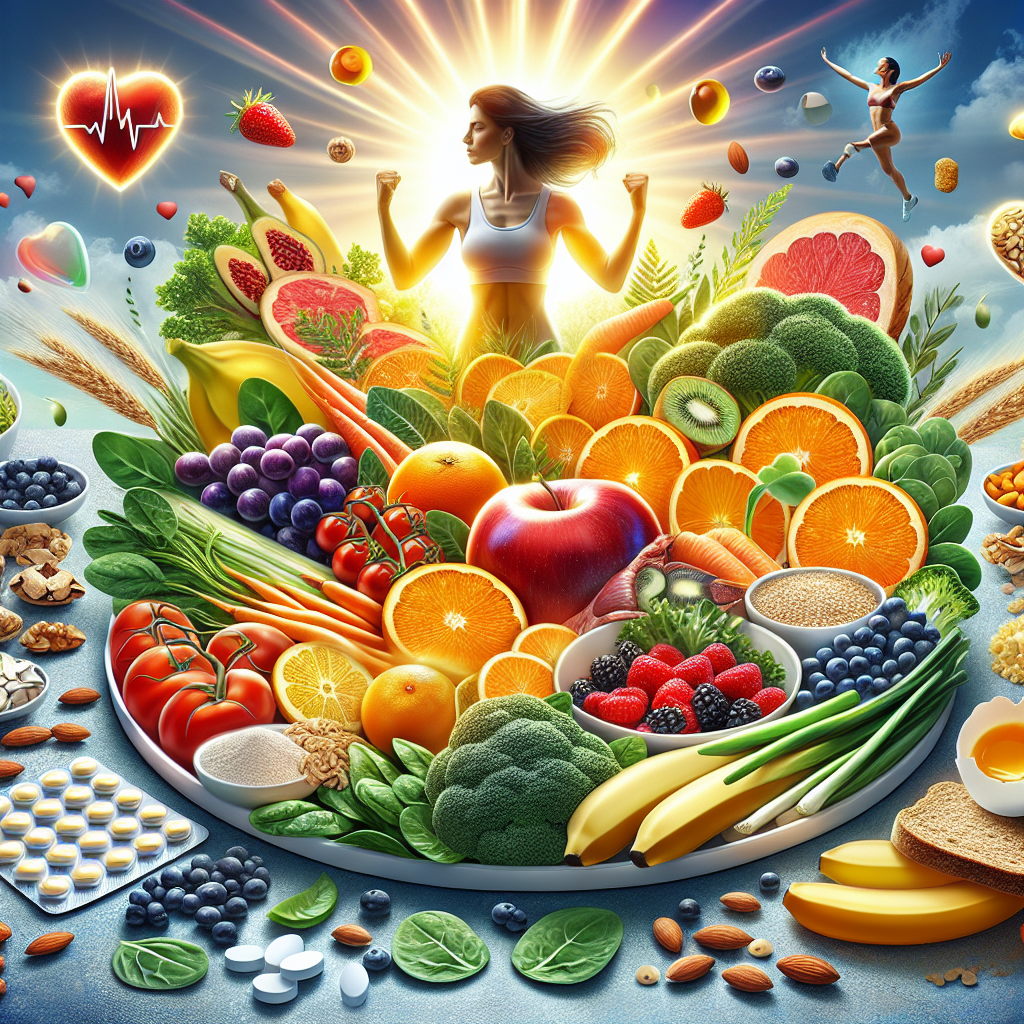
Vitamins and Minerals: A Guide to Health and Energy
The Importance of Vitamins and Minerals in Daily Health 🌍💊**
Dr. Mina*

The Importance of Vitamins and Minerals in Daily Health 🌍💊**
In today’s world, maintaining health and well-being is one of the most important global concerns. Vitamins and minerals play a crucial role in the proper functioning of the body, and their deficiency can lead to health problems worldwide. In this article, we explore the importance of vitamins and minerals and their role in daily health. Additionally, interactive and engaging sections have been added to involve readers more deeply in the content. 🍎💊
---
### Vitamins: Essential Fuel for the Body 🔥
Vitamins are organic compounds that the body needs in small amounts, but their role in maintaining health is vital. Each vitamin has a specific function in the body, and a deficiency in any of them can lead to health issues.
1. Vitamin E 🌿:
- Role: Vitamin E is a powerful antioxidant that protects cells from damage caused by free radicals.
- Benefits: Improves skin health, boosts the immune system, and prevents premature aging.
- Global Sources: Vegetable oils (such as olive oil), nuts (such as almonds and hazelnuts), leafy greens (such as spinach and kale).
2. B Vitamins 🧠:
- Role: B vitamins (such as B1, B2, B6, B12) are involved in energy production, nervous system function, and skin and hair health.
- Benefits: Reduces fatigue, improves mood, and prevents depression.
- Global Sources: Whole grains (such as brown rice and oats), meat (such as beef and chicken), eggs, dairy products (such as milk and cheese).
3. Vitamin D ☀️:
- Role: This vitamin helps with the absorption of calcium and phosphorus and is essential for bone and teeth health.
- Benefits: Prevents osteoporosis, strengthens the immune system, and improves mood.
- Global Sources: Sunlight (especially in sunny regions), fatty fish (such as salmon and tuna), egg yolks.
---
### Minerals: Vital Elements for the Body 💎
Minerals, like vitamins, are essential for the proper functioning of the body. They play a role in many bodily processes, including muscle contraction and oxygen transport.
1. Magnesium 🏋️♂️:
- Role: Magnesium is involved in over 300 biochemical reactions in the body.
- Benefits: Reduces muscle cramps, improves sleep, and reduces stress and anxiety.
- Global Sources: Leafy greens (such as spinach), nuts (such as almonds and walnuts), seeds (such as pumpkin seeds), whole grains (such as oats).
2. Iron 🩸:
- Role: Iron is essential for the production of hemoglobin and oxygen transport in the blood.
- Benefits: Prevents iron-deficiency anemia, increases energy, and reduces fatigue.
- Global Sources: Red meat (such as beef and lamb), spinach, legumes (such as lentils and beans), fortified cereals (such as breakfast cereals).
---
### How to Get Enough Vitamins and Minerals 🥗
To ensure adequate intake of vitamins and minerals, it is essential to maintain a balanced and varied diet. Here are some key tips for obtaining these nutrients:
- Eat a variety of colorful fruits and vegetables 🌈: Each color in fruits and vegetables indicates the presence of specific nutrients. For example, leafy greens are rich in magnesium and iron.
- Incorporate whole grains 🌾: Whole grains like brown rice and oats contain B vitamins and magnesium.
- Consume high-quality proteins 🍗: Meat, fish, eggs, and legumes are excellent sources of vitamins and minerals.
- Consider dietary supplements 💊: In cases of severe deficiency, supplements can be used under medical supervision.
---
### Interactive and Engaging Section: Did You Know? 🤔
1. Did you know that vitamin D is the only vitamin that the body can produce through sunlight? ☀️
- This vitamin is essential for bone health and the immune system.
2. Did you know that iron deficiency is one of the most common nutritional problems in the world? 🌍
- Over 2 billion people worldwide suffer from iron deficiency.
3. Did you know that magnesium is involved in over 300 biochemical reactions in the body? 🧪
- This mineral is essential for heart health, muscles, and the nervous system.
---
### Conclusion: Prioritize Your Health 🌟
Vitamins and minerals play a crucial role in maintaining health and preventing diseases. By following a healthy and varied diet, we can meet our body’s needs effectively. Consulting with nutrition experts can also help you create a suitable dietary plan.
💡 Final Tip: Your health is your greatest asset! By paying attention to your intake of vitamins and minerals, you can have more energy, prevent diseases, and enjoy a more vibrant life. 🌟
Quick Quiz 📝
1. Which vitamin is produced by the body through sunlight?
- a) Vitamin C
- b) Vitamin D
- c) Vitamin E
2. Which mineral is essential for oxygen transport in the blood?
- a) Magnesium
- b) Iron
- c) Calcium
see how much you know about vitamins and minerals! 🎉